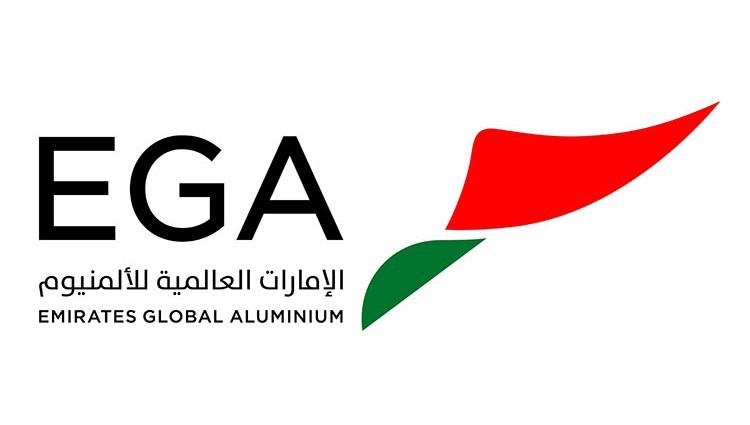Thirteen companies from the Middle East are among a new class of ‘global challengers’ that are leapfrogging their developed market counterparts to achieve global leadership positions according to Boston Consulting Group’s (BCG) report, Global Challengers 2018: Digital Leapfrogs.
UAE’s Etisalat and Emirates Global Aluminium are among the companies driving the digital revolution that feature on the list. Despite the region’s digital prowess, only one tech unicorn has emerged, and that is UAE-based Careem.

Etisalat is a telecommunications trailblazer, and the world’s 14th largest mobile network operator, with a business presence in 18 countries, partly under different brand names. It was also the first telecommunications service provider in UAE.
Emirates Global Aluminium (EGA) is one of the top five global aluminum producers, with a strong geographical presence in 60 countries, EGA has recently incorporated two companies.

Global Challengers from the Middle East
In addition to Etisalat and Emirates Global Aluminium, other countries representing the Middle East on the Global Challengers list include the likes of SABIC and Almarai from Saudi Arabia; and companies from Egypt, Turkey and Qatar.

“When compared to companies in developed markets, Middle Eastern global challengers have demonstrated significantly faster growth profitability in most industries over the past decade. In the long term, the 100 Global Challengers’ total shareholder return outperformed their global peers, the S&P 500, and the MSCI Emerging Markets Index. More recent performance of emerging markets was affected by broader economic conditions; despite this, their revenue growth continued to outpace that of peers in other indices across multiple sectors. In fact, over the past five years, Middle Eastern global challengers have had significant revenue growth, four times that of the S&P 500 while securing high margins,” said Markus Massi, a BCG Senior Partner in the Middle East and the regional leader of the firm’s Global Advantage practice.
Digital Adoption in the Middle East
Three quarters of the global challengers from the Middle East are leaders in digital adoption, both in their home markets and beyond. Nowhere is the trend toward digitization more evident than among those 13 global challenger companies, many of which are leveraging digital technologies both to win in emerging markets and to compete globally with multinationals.
However, the region is significantly underrepresented in terms of unicorn companies: Only one unicorn company, Careem, out of 220 global unicorns comes from the Middle East, compared to the top 100 unicorns, who mainly originate from China (33 percent) and the United States (43 percent).
When it comes to digital adoption, instead of aiming for unicorn status by being digital disruptors, the report found that Middle Eastern challengers develop their digital capabilities in three main ways. First, they invest in internal innovation programs and research and development. Middle East companies also pursue partnerships and joint digital ecosystems or establish their own, and they acquire digital capabilities through mergers and acquisitions and private investments in startup companies and technologies. All three methods are proving to be highly productive avenues for digital development.
A Global Comparison
Among global challengers, digital adoption is evident across multiple sectors, including consumer, TMT (technology, media, and telecommunications), energy, healthcare and financial services. The Middle East region, however, still holds untapped potential that will spur growth of the digital economy as businesses and governments are behind other regions in embracing digital commerce and have yet to adapt to the digital imperative.
Although half of the Middle Eastern population is under 25 years of age, the region has 90 million internet users who account for 1 percent of global e-commerce sales (compared to China with 42 percent). The main reasons for this are several hurdles such as low consumer trust in and awareness of e-commerce, shortcomings in the payment infrastructure, and logistical difficulties. However, the region is undergoing a major transformation and getting ready for a digital future. A first indicator is Amazon’s recent market entry in the Middle East, with the recent acquisition of Souq.com and the launch of Noon.com.
“As the Middle East is becoming the next frontier of the global digital revolution, we believe that going forward, the global challengers will continue to be a driving force and outperform the market. They are able to leverage their regional base with superior access to the local markets and build on their strong digital capabilities to improve operations and overcome many of the physical, financial, and commercial hurdles to doing business in emerging markets, including those related to geography, logistics, and infrastructure,” concluded Markus Massi. “Favorable regulatory environments would help to embrace digital innovation and adoption within the region, in particular, digitally enabled workforces and new ways of collaborating in digital ecosystems.”
About the report methodology:
The BCG global challengers are chosen using a combination of quantitative and qualitative criteria. Companies must have annual revenue of at least $1 billion, 1,000 or more employees, and growth rates that out-pace their home-market GDP or the industry average. EBIT margins must equal or surpass the industry average. Companies must also have a strong international presence—10 percent or more in international sales or $500 million or more in international M&A—and credible aspirations to build a truly global footprint. We do make some exceptions for fast-growing, high-impact companies that are accelerating rapidly toward these thresholds. About two-thirds of the 100 global challengers meet all the criteria; almost all meet three or more.
Discover who these companies are and how they are making an impact. A copy of the report can be downloaded here.
About Boston Consulting Group
Boston Consulting Group (BCG) is a global management consulting firm and the world’s leading advisor on business strategy. We partner with clients from the private, public, and not-for-profit sectors in all regions to identify their highest-value opportunities, address their most critical challenges, and transform their enterprises. Our customized approach combines deep insight into the dynamics of companies and markets with close collaboration at all levels of the client organization. This ensures that our clients achieve sustainable competitive advantage, build more capable organizations, and secure lasting results. Founded in 1963, BCG is a private company with offices in more than 90 cities in 50 countries.





